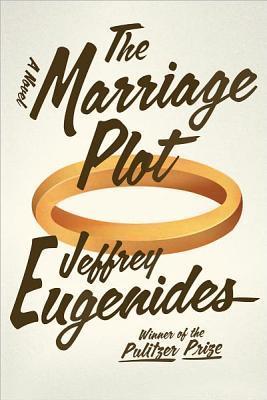More on this book
Community
Kindle Notes & Highlights
And yet sometimes she worried about what those musty old books were doing to her. Some people majored in English to prepare for law school. Others became journalists. The smartest guy in the honors program, Adam Vogel, a child of academics, was planning on getting a Ph.D. and becoming an academic himself. That left a large contingent of people majoring in English by default. Because they weren’t left-brained enough for science, because history was too dry, philosophy too difficult, geology too petroleum-oriented, and math too mathematical—because they weren’t musical, artistic, financially
...more
In the days when success in life had depended on marriage, and marriage had depended on money, novelists had had a subject to write about. The great epics sang of war, the novel of marriage. Sexual equality, good for women, had been bad for the novel. And divorce had undone it completely. What would it matter whom Emma married if she could file for separation later?
In his office, which had a grandparental smell,
College wasn’t like the real world. In the real world people dropped names based on their renown. In college, people dropped names based on their obscurity.
but by senior year she could no longer ignore the contrast between the hard-up, blinky people in her Beowulf seminar
He had the wit of a store mannequin.
and little scarab-like rental cars scurrying between lanes as though to avoid being squashed.
In Madeleine’s face was a stupidity Mitchell had never seen before. It was the stupidity of all normal people. It was the stupidity of the fortunate and beautiful, of everybody who got what they wanted in life and so remained unremarkable.
Which invited the question of how, exactly, did you douse a burning river? What could you do, when the retardant was also the accelerant? The lovelorn English major contemplated the symbolism of this.
Feeling a wave of fatigue, Mitchell was reminded why he didn’t like to get high in the morning. After the initial rush of energy, the day became a boulder you had to push uphill.
The gates were doing something to him already, because as he raised his hand to wave back at his parents, Mitchell felt ten years old again, tearing up, choked with feeling for these two human beings who, like figures from myth, had possessed the ability throughout his life to blend into the background, to turn to stone or wood, only to come alive again, at key moments like this, to witness his hero’s journey.
“People don’t save other people. People save themselves.”
Mitchell and Larry reached Paris in late August after a summer of boredom and desperate employment.
Mitchell had dozed fitfully through the long transatlantic night until the cabin lights blazed on and a flight attendant shoved a half-frozen croissant in front of his face, which he nevertheless nibbled as the huge passenger jet made its descent over the capital.
Larry, who spoke French, walked ahead, looking for Claire’s apartment, while Mitchell, who didn’t have a girlfriend in France or anywhere else, expended no effort in trying to get them where they were going. Jet lag added to his slight delirium. It was morning by the clock but deepest nighttime in his body. The rising sun forced him to squint. It seemed unkind somehow. And yet, at street level, everything had been arranged to please the eye.
The broadness of the sidewalk accommodated newspaper kiosks, dog walkers, chic ten-year-old girls on their way to the park. A sharp scent of tobacco arose from the curbside, which was the way Mitchell had thought Europe would smell, earthy, sophisticated, and unhealthy, all at once.
Hearing a foreign language coming from people’s mouths allowed Mitchell to imagine that everyone was having an intelligent conversation, even the balding woman who looked like Mussolini.
Desire didn’t bring fulfillment but only temporary satiety until the next temptation came along. And that was only if you were lucky enough to get what you wanted. If you didn’t, you spent your life in unrequited longing.
There were some books that reached through the noise of life to grab you by the collar and speak only of the truest things.
Unable to afford a gondola, they spent their first hours in the city traversing bridges and flights of stairs that all seemed to lead, as in an Escher drawing, back to the same piazza, with the same burbling fountain and duo of old men.
And that was where, figuratively, Leonard pretty much stayed for the remainder of high school, under an overhang, smoking pot in the drizzle. It was always raining in Portland and there was always an overhang nearby, behind the school, under the Steel Bridge in Waterfront Park, or beneath the leaky branches of a wind-desolated white pine in somebody’s backyard.
There was something about tennis—its aristocratic rituals, the prim silence it enforced on its spectators, the pretentious insistence on saying “love” for zero and “deuce” for tied, the exclusivity of the court itself, where only two people were allowed to move freely, the palace-guard rigidity of the linesmen, and the slavish scurrying of the ball boys—that made it clearly a reproachable pastime.
Buoyed by his brain chemistry,
Like the dining room itself, the toast was trying to be British, and failing. The bread slices were the right shape. They looked like bread. But instead of being toasted they’d been grilled over a charcoal fire and tasted of ash.
At six o’clock, when the students dispersed (their commitment to the cause didn’t extend to skipping dinner),


